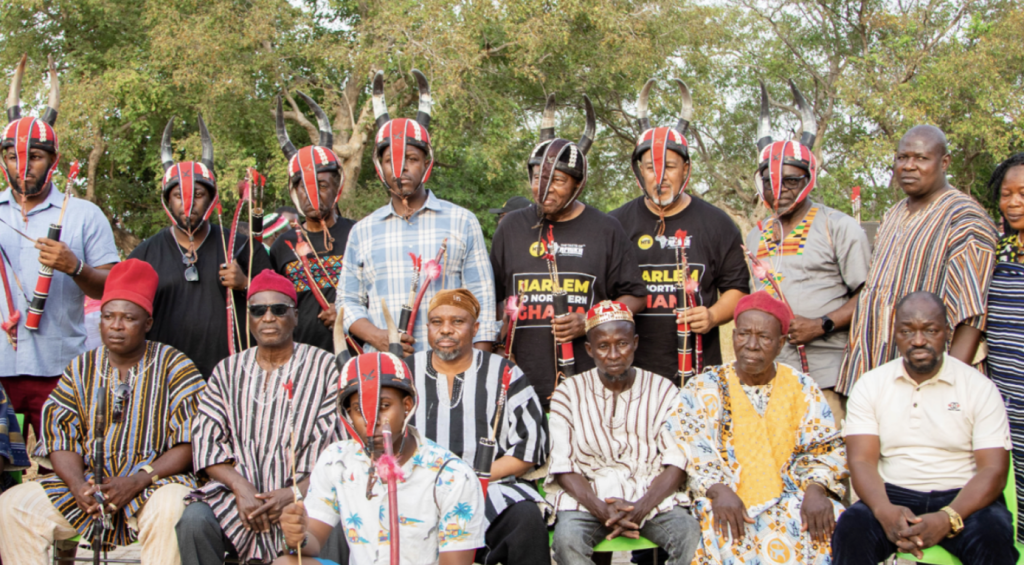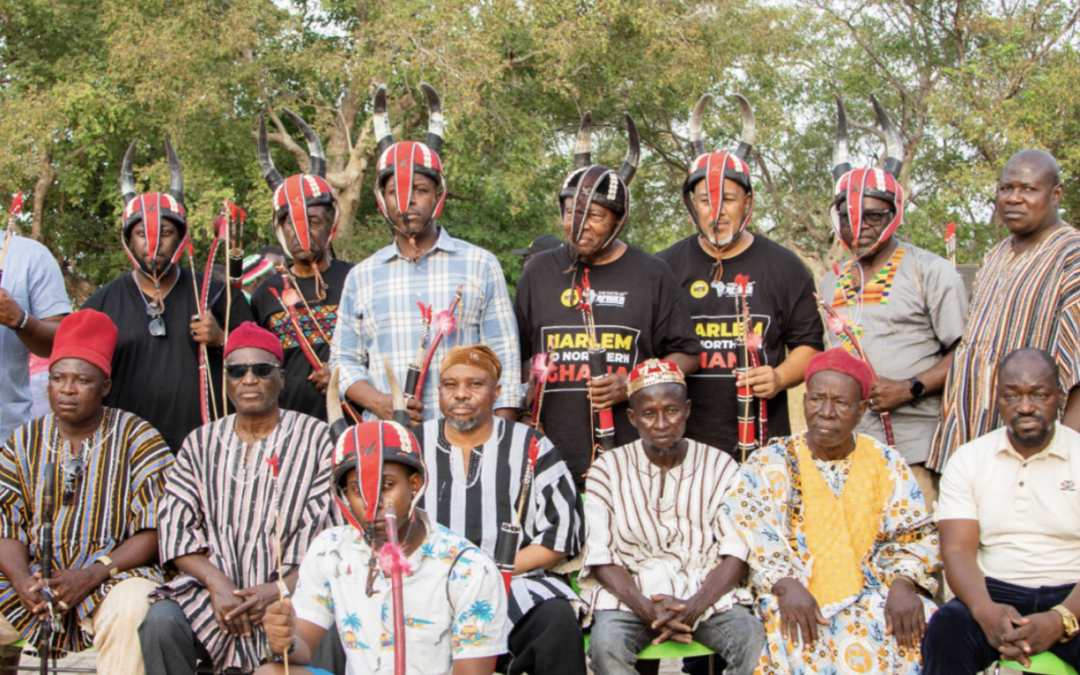SUSTAINABLE CULTURAL TOURISM: THE CASE OF THE CULTURAL ONENESS FESTIVAL 2024

Introduction
Cultural tourism is among the fastest-growing global sectors, capable of delivering substantial economic advantages while promoting cultural exchange and mutual understanding. Nevertheless, it also poses challenges, such as environmental harm and cultural dilution. Sustainable tourism aims to mitigate these issues by balancing the economic, social, and environmental aspects of travel, ensuring lasting benefits for travellers and host communities alike. The Cultural Oneness Festival 2024 showcased the implementation of sustainable tourism principles.
What is Sustainable Tourism?
According to the World Tourism Organization (UNWTO), sustainable tourism is defined as: “Tourism that takes full account of its current and future economic, social, and environmental impacts, addressing the needs of visitors, the industry, the environment, and host communities.” This approach emphasizes minimizing negative impacts while maximizing benefits, ensuring that tourism development meets the needs of present and future generations.
Data on sustainable tourism in the world
Globally, according to data from Statista.com, the tourism sustainability market was estimated to be worth $172 billion in 2022, with a projection to 2028 of $374 billion. According to the 2023 Sustainable Travel Report, 76% of travellers have set a goal to travel more sustainably in the next 12 months, and 74% are asking tour operators for proposals in line with that expectation. Sustainable tourism practices are also a strategic factor in achieving the goals of the United Nations 2030 Agenda.
Indeed, sustainable tourism not only preserves and protects the natural and cultural environment, but it also promotes the equitable and inclusive economic development of local communities and the adoption of socially responsible practices. Furthermore, sustainable tourism promotes awareness and understanding among cultures, thereby contributing to peace and cooperation among nations: these are key goals of the 2030 Agenda.
THE CULTURAL ONENESS FESTIVAL 2024
The 2024 edition of the Cultural Oneness Festival, held from November 13-16 in Northern Ghana, was a vibrant celebration of Africa’s rich heritage and unity. Organised by The Taste of Afrika, the event brought together traditional chiefs, cultural leaders, scholars, and festival-goers from across the continent and the diaspora under the theme, “Leveraging Our Strength for Shared Growth and Prosperity as One People.” The festival featured cultural, educational, and social activities to foster unity, promote and preserve African culture, and strengthen ties between Africa and its diaspora. The festival initiatives leveraged our rich cultural heritage for the benefit of both local communities and visitors seeking authentic experiences. By prioritising the preservation of traditions, enhancing community skills, and fostering economic development through tourism, it created a sustainable model that not only celebrates our unique identity but also empowers individuals and families thereby creating a win-win situation for everyone involved
Held in an extremely scenic part of Ghana, the festival’s organisers prioritise sustainable tourism practices to ensure that the event aligns with the principles outlined by the UNWTO.
CULTURAL PRESERVATION
The festival’s commitment to cultural preservation is evident in its programming. The Cultural Roots Tours and the Tolon Palace Experience exemplify a multifaceted approach to cultural preservation, combining historical remembrance, honouring ancestral resistance, transmitting cultural practices, engaging local communities, and connecting the diaspora to create a powerful and meaningful experience.This ensures that the legacy of the past continues to shape the present and future.
- Preserving Historical Memory:The visit to the Pikworo Slave Camp serves as a crucial act of preserving historical memory. By physically visiting the site and hearing stories from local guides, participants connect with the tangible remnants of the transatlantic slave trade. This direct engagement ensures that the painful history of slavery is not forgotten and its lessons remain relevant. The tour acts as a memorial and a testament to the resilience of the African people.
- Honouring Ancestral Resistance:The act of participants from the diaspora dressing in the regalia of native fighters of the slave trade is a powerful form of honouring ancestral resistance. It acknowledges and celebrates those who fought against the inhumane practice, keeping their memory alive and inspiring a sense of connection to their struggle.
- Transmission of Cultural Heritage:The festival goes beyond simply remembering the past; it actively transmits cultural heritage to the present. The inclusion of traditional dances, music, and crafts from local communities brings history to life in a more engaging and personal way. This transmission ensures that these cultural practices continue to be valued and passed down to future generations.
- Spiritual and Educational Experience:The description emphasizes the tour as both a “spiritual and educative” experience. This highlights the importance of connecting with the emotional and spiritual dimensions of history, fostering a deeper understanding of African identity and the impact of the past on the present.
- Engagement with Local Communities:The involvement of local guides and the visit to the Tolon Palace demonstrate the importance of engaging with local communities in the process of cultural preservation. These interactions provide authentic insights into local traditions, customs, and stories, ensuring that the preservation efforts are rooted in the lived experiences of the people whose culture is being celebrated.
- Connecting the Diaspora:The festival plays a vital role in connecting the African diaspora with their ancestral roots. By providing opportunities to visit historical sites, experience traditional culture, and learn about their heritage, the festival fosters a sense of belonging and strengthens connections to the African continent.
- Preservation through Symbolic Actions:The giving of kola nuts and the introduction of the guests by the Sun Naa at the Tolon Palace are symbolic actions that reinforce cultural preservation. These customs represent traditional forms of welcome and communication, maintaining established cultural practices.
ECONOMIC EMPOWERMENT
- Prioritizing Local Vendors:
- Fashion Show: The Sahel Fashion Show directly supports local designers and artisans by showcasing their work and emphasizing the use of local fabrics. This directly benefits local textile producers and related businesses.
- Food and Hospitality: The event generates demand for local food vendors and caterers, ensuring that spending on food and beverages stays within the community.
- Music and Entertainment: Featuring local musicians like Fatland directly supports the local music scene and related businesses.
- Job Creation:
- Event Setup and Management: The organisation and execution of the festival, including the forum and fashion show, required personnel for various tasks such as event setup, logistics, stage management, security, and registration. These roles provided temporary employment opportunities for local residents.
- Hospitality Services: The influx of attendees, speakers, and organisers increased demand for local hospitality services, including accommodation, catering, transportation, and other related services, thereby providing temporary jobs in these sectors.
- Indirect Job Creation: By stimulating economic activity in various sectors, the festival also contributes to indirect job creation, such as cultural troop performances, tour guides and models for the fashion show.
- Promoting Local Tourism:
- International Participation and Showcasing Local Culture: The involvement of international figures and the focus on showcasing Northern Ghana’s rich cultural heritage attract attention and potentially encourage future tourism. This increased tourism revenue benefits various sectors of the local economy, including transportation, accommodation, restaurants, and local businesses.
- Focus on Cultural Tourism: The emphasis on sectors like hospitality, music, agriculture, dance, and food within the context of cultural tourism directly promotes the region as a cultural tourism destination. This strategic focus can attract tourists interested in experiencing local culture and traditions.
SOCIAL IMPACT
- Strengthening Intercultural Dialogue and Collaboration:
- International and Inter-Regional Participation: The gathering of traditional leaders, government officials, and international dignitaries from Ghana, Burkina Faso, and Nigeria fostered intercultural dialogue and collaboration. This exchange of ideas and perspectives can lead to stronger regional relationships and joint efforts towards development.
- Diaspora Engagement: The presence of the President of the Harlem Tourism Board and his call for diaspora support created a bridge between the diaspora community and Northern Ghana. This engagement can lead to increased investment, knowledge sharing, and cultural exchange, strengthening ties with those who have ancestral connections to the region.
- 2. Reinforcing Traditional Leadership and Governance:
- Convening of Traditional Leaders: The gathering of kings, chiefs, and sub-chiefs reinforced the role of traditional leadership in local governance and development. This can strengthen traditional institutions and promote community participation in development initiatives.
- Collaboration between Traditional and Modern Institutions: The durbar facilitated collaboration between traditional leaders, government officials, and international organizations, highlighting the importance of partnerships between traditional and modern institutions in achieving development goals.
Conclusion
As we face the challenges of globalization and urbanization, it becomes increasingly important to safeguard our cultural assets and promote them as vital components of our community’s fabric. The Cultural Oneness Festival seeks to bridge the gap between the past and the future, ensuring that our stories, crafts, and customs are not only preserved but also appreciated by future generations.
With the collaboration of local residents, businesses, government agencies, and tourism stakeholders, we can support this initiative, fostering an environment where culture thrives, economies grow, and communities become more resilient.
Written by
Frederick Asante Agyemang
Brand and Communications Management Consultant
January 6th 2025

